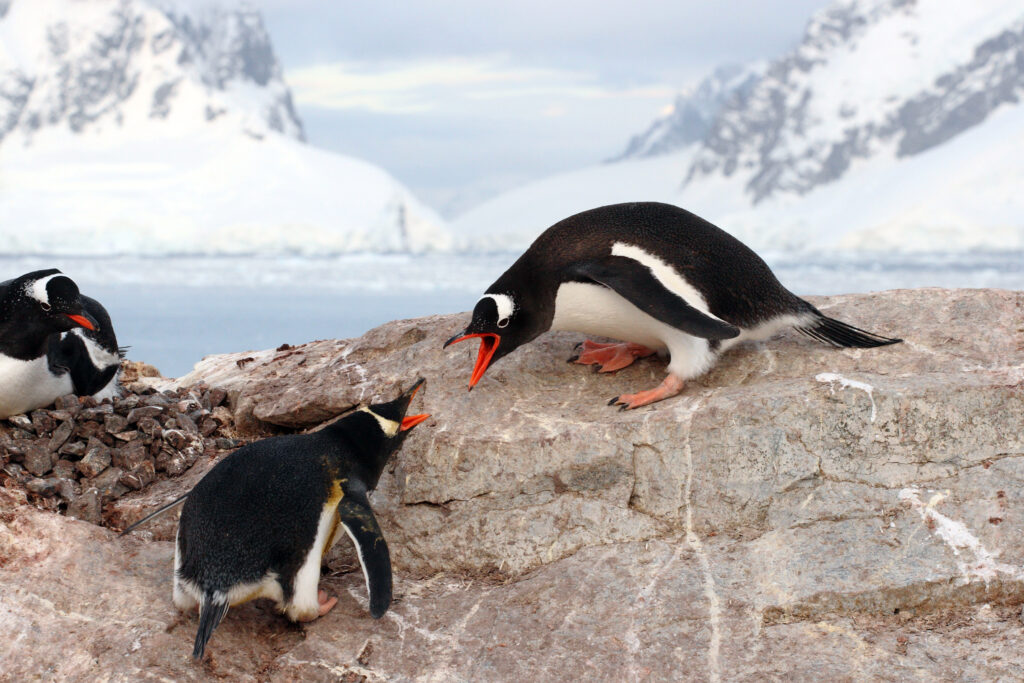The Equity Trap

Smaller nations and developing states get outmaneuvered in international treaty negotiations for various reasons: geopolitical weakness, inadequate clout on specific issues, pressure from wealthier countries and multinational corporations. The most perverse proof of this imbalance may be the insistence in some treaties that these are representing fairly the interests of all, in the name of “equity” and “equitable outcomes.”
These terms pepper many complex texts, from the pandemic accord to the plastics treaty (both still in draft form). But too often this open-ended language commits to nothing concrete: It only aspires to ambiguous goals and is really a technocratic artform that creates an illusion of progress. The word “equity” is typically namedropped in text only to retreat from it on substance. If anything, “equity” is a vestige of the very power plays it is designed to correct: It often winds up favoring wealthier countries that manipulate its ambiguity to serve their own interests.
This problem afflicts what is known as “access and benefit sharing,” a major element of biodiversity governance. We experience and use nature in many ways that are often synchronous or concurrent: The same resource can exist simultaneously in multiple forms, with different kinds of present and future value.
Genetic resources can exist physically, and are then stored in biological sample repositories, or as digital sequence information (DSI) derived from those physical samples, which is then filed in databases. Different property rules apply depending on whether resources are tangible or intangible; whether they are held in databases or as single sequences protected by intellectual property rights; and whether they fall under a sovereign state’s authority or beyond any national jurisdiction.
Genetic resources in molecular form can be patented as part of an invention with a functional use (like a vaccine). But sometimes, if they consist of dematerialized information (as do, say, gene sequences) or are stored in aggregate form (as in databases), they can escape conventional property rules that apply to tangible resources, particularly those rules that relate to location, origin, or indigenous peoples. This complexity makes the governance of biodiversity challenging, and often incoherent, as well as ripe for exploitation through legal loopholes.
Perceptions of the value of biodiversity and how it might be shared vary considerably, and because ambiguity surrounds who owns what aspect of which concurrent values, some of these perceptions are politically charged. When it comes to determining who should profit from the technological and commercial benefits of biodiversity, indigenous peoples and local communities who live in intimate relationships with their lands and their seas, as well as the biodiversity-rich developing countries that are its traditional custodians, have tended to lose out. The continued skewed impact of these laws is often the result of poor legal imagination and an inability to change decades-old ways of doing things.
Until recently. Talks that led to the formation of the 2023 Ocean Treaty, which will govern the conservation and sustainable use of biodiversity from the high seas, charts a new way forward.
But first, some background. The 1992 Convention on Biological Diversity was partly designed to address the problem I have described. It had three objectives: the conservation of biological diversity, the sustainable use of its components, and the fair and equitable sharing of benefits arising from the use of genetic resources, which includes appropriate access to the genetic resources themselves and to the transfer of relevant technologies developed from them.
The convention says, among other things, that plant and animal genetic resources found within the borders of a sovereign state are owned by that state. In 2014, the convention was supplemented with the Nagoya Protocol, which clarified the meaning of provisions on equitable benefit-sharing. The protocol contains 27 references to “equity” or “equitable outcomes” in its preamble, as well as 36 in its operative provisions. Researchers who access and utilize those genetic resources—for an invention or to develop a biotechnology product—are required to enter into contracts ensuring that any commercial benefit they reap will be shared with the country where those resources originated.
But the governments of developing countries, or the indigenous peoples associated with such genetic resources, know that when a product starts making money, they probably will not have the information or leverage to ensure that the contracts are honored. So, they often settle upfront for benefits that are much less substantial than a share of the eventual profits would be. That is one way that putative, formal benefit-sharing can become a cover for one-sided profiteering.
Textual ambiguity serves richer and technologically able countries, and they often seek to preserve or exploit it. For example, developed countries resist the notion that the term “genetic resources” should encompass “genetic information”: They may not possess the former in abundance, but they are eager to exploit the latter. And yet scientists have long known that the physical structure of genes also encodes genetic information; to separate the two is scientifically incoherent even if it is, sadly, still legally possible.
Consider two examples of how these issues can play out.
First, Rooibos tea. It comes from a plant native to the Cederberg Mountains of South Africa and is a product of both the local soil and pollination by a resident beetle. The plant is very difficult to grow elsewhere. The San and Khoi peoples are the knowledge-holders of the cultivation and use of Rooibos. In 2015 a review by the South African government concluded there was a strong case for compensating the San and Khoi for any commercial use of the tea because of their stewardship of this tradition. But it was only in 2022 that about $800,000 from worldwide sales was transferred to indigenous communities. Some hailed that deal as a success, a proof of the concept that benefits can be equitably shared. Others have said—rightly so, in my view—that it should not have taken 30 years for such a modest sum to materialize.
Second, Ebola. The disease, left untreated, has a 40 percent fatality rate. In 2020, the pharmaceutical company Regeneron produced a drug, Immazeb, based on a virus-strain sequence obtained from a survivor of an Ebola outbreak in Guinea in 2014. That information had been made publicly accessible on the database GenBank, uploaded by the Bernhard Nocht Institute for Tropical Medicine without any restriction on further use. Under the Convention on Biological Diversity, the Guinean government is the owner of the physical viral strain yet Regeneron is under no obligation to share profits from Immazeb with Guinea—or even to provide affordable access to the drug to the people of Guinea, should another Ebola outbreak occur there. That is because, or so the argument goes, in order to develop the drug, Regeneron used the sequence information rather than the physical strain of the virus.
We should confront this kind of rationale; it is patently unfair and detrimental to coherent governance. And it has sweeping implications, especially considering the coming expansion of the use of digital data. “Equitable benefit-sharing” is also a central issue in the Pandemic Preparedness, Prevention and Response Accord, which will include a Pathogen Access and Benefit Sharing agreement currently being negotiated at the World Health Organization.
Elisa Morgera, an environmental law expert and the UN’s special rapporteur on human rights and climate change, argues in her recent book Fair and Equitable Benefit-sharing in International Law that “in practice benefit-sharing rarely achieves its stated fairness and equity objectives.” Worse, it “actually ends up entrenching or worsening inequitable relationships, with little or no benefit for the environment.”
There are better ways to proceed. The Ocean Treaty has been widely seen as a win for multilateralism, and I think it has important things to teach us about actually achieving some meaningful measure of equity in treaty negotiations.
At 10 a.m. on Feb. 20, 2023, the Cuban diplomat Richard Tur de la Concepción addressed the opening plenary session of the resumed Fifth Intergovernmental Conference on the Biodiversity Beyond National Jurisdiction Treaty, as the agreement is formally known. Speaking on behalf of the G77 + China Group, a block of 134 developing countries that negotiated together for the Global South, he explained that they would shortly be posting textual proposals on marine genetic resources representing consensus within the group.
Unlike the G77 + China group, key developed countries with high stakes in the Ocean Treaty did not have a standing mechanism at the UN; they came together as the so-called Like-Minded Group, which included EU member states, the UK, the US, Canada, Australia, New Zealand and South Korea. The announcement from Tur de la Concepción caught them off guard. The question of who should own and govern marine genetic resources and their applications had been holding up agreement on the text of the treaty since 2018, and it was an astonishing development that now more than some two-thirds of the parties in attendance could present a common front.
Atypically for wealthy states, the Like-Minded Group spent most of the next two weeks in a responsive mode, rather than trying to set the agenda. During the last days of negotiations it took all the parties 36 hours straight to finalize the whole treaty, including the most contentious part on genetic resources. The talks almost fell apart toward the end, but today there exists an international agreement that governs genetic resources and DSI derived from oceans beyond sovereign territories—or 43 percent of the planet. It will become binding law once 60 states ratify it (so far 16 states have done so).
By my count, the finalized Ocean Treaty text contains 17 references to equitable outcomes. Without the right kind of expertise and coordination, “equity” or similar terms would have appeared many more times in the treaty, and not in a helpful way. The agreement’s truly actionable core measures on genetic resources came from an alliance of developing countries.
How did that happen?
A month before that plenary meeting, I led two other experts in a briefing for the G77 + China Group. Dr. Paul Oldham, the director of One World Analytics, and Dr. Claudio Chiarolla, then a legal consultant on biodiversity governance, and I presented an 80-page briefing document on marine genetic resources.
I had been working on these issues with various state groups since 2019. I come from a developing country but am an academic based in a Global North university, specializing in intellectual property law. My significant involvement behind the scenes of these intergovernmental negotiations allowed me to become intimately acquainted with the goals and red lines of the developing states group and to explore positions that every party might be able to live with.
Our briefing recommended against even defining DSI. It provided specific language on the use of unique markers to identify both materials and digital sequences, as well as on reporting obligations for repositories and databases. It also suggested focusing on the aggregate use of resources, rather than fixating on drawing a distinction between developed and developing countries. The point was to bypass previous pitfalls and get at what really mattered. In the end, the document helped build consensus, notably on how benefits would be shared from the use of marine genetic resources, including in DSI form.
The Ocean Treaty bucks the trend set by other purportedly equitable agreements related to genetic resources. It requires sharing any benefits derived from physical samples or related DSI by mapping where the resources were collected and making that information publicly available. Notably, the “standardized BBNJ batch identifier”—as the unique marker is called in the treaty—which is readable by both humans and machines, links cataloguing with reporting and compliance. These measures, when implemented, will force international coordination and bring unprecedented visibility to the actions of those who access, store and use genetic information derived from the high seas.
The agreement also creates a tiered fee system pegged to usage. Those monetary contributions will then help cover the costs of implementing the treaty and will be distributed, based on need, to help states with the conservation and sustainable use of marine biodiversity. This will be possible because the identifier allows usage to be measured. And now that aggregate use can also be measured, it will not be necessary to chase after the individual holders of patents on molecules and sequences, as had been the case before.
Consider this hypothetical. A new organism is discovered beyond sovereign territories, which is a distinct possibility given that by some estimates 6,000 to 8,000 species are yet to be discovered on the sea floor alone. It lives near hydrothermal vents, meaning that it can withstand high temperatures. Physical samples of the organism are deposited in a repository; DSI based on its genetic material is made available in a database; scientific publications report on the organism. Let us also assume this marine organism carries sequence information that can be used to modify land crops so that they may withstand drought. That genetic trait is then patented.
The repository, the digital database, the authors and the patent holders will all use the batch identifier when meeting reporting obligations. Now that the origins of any product derived from that digital sequence data can be traced, commercial returns on this product will become part of the aggregate usage relevant for calculating tiered contributions. Thanks to the identifier, what kind of research is being done where, by whom and for what purpose can be mapped.
The Ocean Treaty also suggests a way forward for other major international agreements—for a possible pandemic treaty, for the newly established Cali Fund, a UN-managed fund under the Convention on Biological Diversity to which industries or companies that use genetic data from natural resources will have to contribute. Many provisions in the draft pandemic agreement are bookended by placeholder terms like “equity.” But the talks are floundering partly because developing countries have not taken coordinated positions on critical matters such as identifiers or the basis of access to any eventual medicinal products. The Ocean Treaty was the product of the kind of expertise-led rebalancing that global governance so desperately needs. Was it a fluke or the advent of a new normal?
The week before negotiations began, we, the external experts advising the chair of the G77 + China Group, had published a policy brief setting out key proposals from developing countries. It was a smoke signal for developed-country experts—an invitation for them to get in touch with us to find out more—and it prompted fruitful out-of-sight conversations. It also helped that the G77 + China Group was chaired by Cuba, which has a storied diplomatic tradition. The chairs of the Africa group, the Caribbean states, the Latin American group and the Pacific Small Island States worked collaboratively to develop common positions. A million and one pieces had to fall into place for the treaty to be finalized, of course, but expertise mattered.
Today, many major deals are being negotiated, formalized and legalized even as a full understanding of their scientific and economic implications is only still emerging. Expert advice is not simply a question of money, time and competence; it is also about trust, insider knowledge and a form of kinship within groups. Diplomacy at the UN can be opaque and intensely hierarchical, and getting access to diplomats and their advisers is often the most challenging aspect of marshalling and using expertise. Many momentous decisions are made on the fly by busy negotiators who are already thinking about the next week’s talks on another deal.
A few years ago, the Gates Foundation was accused of stacking the UN expert process on controversial and dangerous gene-extinction technologies with the help of the consulting firm Emerging Ag, which provided secretariat-like support and recruited experts to speak in UN fora against a moratorium on those technologies. The firm claims to help “consensus building” on scientific matters, but when the underlying issues are so polarizing, that service can amount to science-washing for political advantage. Emerging Ag is now also providing so-called secretariat services to the DSI Scientific Network, a group that purports to speak for “the scientific community,” about the global benefits of open access to DSI. This network has a vocal presence in all international fora where valuable genetic resources are at play.
Yet if open-access models can indeed benefit science, they also allow some actors to profit from information in the public domain to the detriment of other actors, such as developing countries—including the developing countries that own the very genetic resources on which that information is based. Open access should not become a euphemism for a free-for-all. Some scientists argue that transparent access to DSI is essential for research and that finding a way to balance that interest with the interest of the states where the original physical resources were found is merely an engineering issue. Records of access (to individual or aggregate forms) and use are essential for accountability because benefit sharing is a firm principle under national laws and international rules such as in the Nagoya Protocol and now in the Ocean Treaty.
These admittedly are complicated issues, and they are especially difficult to disentangle in the context of fraught international negotiations without sound coordination on the part of developing states. Claims that “the scientific community” speaks in a single voice can make way for an ideational power grab by stealth, and it politicizes what might otherwise be an exchange among multiple constituencies with varying views.
In their article “No Research on a Dead Planet,” the ecologist Aaron Thierry and his co-authors argue that many academics in higher education suffer from a “maladaptive cognitive-practice gap,” as well as a form of socially organized denial, and wind up upholding the cultural hegemony of business as usual. But in the face of climate change and likely ecological collapse, how should scholars respond? By doing more of the same or finding new ways to help turbo-charge societal transformation?
We need not just better ideas, but also better ways of ensuring that the people who have the power to make changes are listening to those who bring new ideas to the fore. One obstacle is that academics tend to be conformists and are reluctant to wade through political processes to help make actual law. Another is that there is a glass wall between experts and diplomats.
In my experience, two elements are crucial to breaking through that wall.
The first is building trust, both in the process and among the people involved in it. A kind of soft trust tends to naturally develop among underdogs in negotiations, on the basis of something like credence or loyalty. It may be difficult to formalize this—and perhaps that is as it should be. Hard trust, for its part, comes from putting in place specific modalities about concrete proposals that actually implement equity: stipulating the percentage of profits or end-use products to be shared, or requiring the transfer of technology during health emergencies; allowing that we cannot govern resources if we do not know where they come from, or accepting that data, too, should be paid for. Hard trust can be gained and built by embedding binding legal obligations in text , as Paul Oldham and I have discussed in “The Pandemic Access and Benefit Sharing System: Four Elements of a Trusted System.”
Both the latest Conference of the Parties under the Convention on Biological Diversity (COP16) and the draft pandemic agreement hope to compel industries that use DSI to make monetary contributions to global funds serving the treaties’ objectives. The potential sums are considerable. In late October in Cali, Colombia, a remarkable new decision set out the precise parameters according to which industries and companies—in the pharmaceutical or agrobusiness sectors, for example—are encouraged to participate, based on the size of the entities that use genetic resources directly or indirectly in their commercial activities. The language in Paragraph 3 of the final decision was adapted from research conducted by my group and was frequently referred to during negotiations as the “LSE Model.”
We did that work with little-to-no funding and minimal institutional support. And it is gratifying to see the resoluteness with which the proposals were picked up (first by Norway) because they were backed by expertise and were knowledge-based. The payment mechanism is voluntary, but it nonetheless signals a departure from vague commitments to “equity.” At least 50 percent of the money contributed to the Cali Fund is earmarked for indigenous peoples. These measures are the clearest expression to date of the heuristic “pay nature first” call that came out of a LSE roundtable of experts, industry representatives, genetic-database stakeholders and negotiators from developing and developed countries alike.
The second way of breaking through the wall between diplomacy and academia would be to provide diplomatic missions from the Global South with institutional support and a chief of staff of sorts—an entity or person with both a vision to bring greater balance to often-skewed negotiations and a mandate to build procedural bridges among representatives from very different states. All too frequently, delegations with limited means face off well-funded delegations backed by satellite organizations and industry lobbyists masquerading as experts. A chief of staff can assess actual expertise, rather than just sign on supposed specialists, and manage subversive agenda-setting, which often disadvantages poorly resourced teams.
For much of the negotiations on the Ocean Treaty, there was such an entity supporting the chair of the G-77 + China group: Independent International Legal Advocates—a one-man operation by the former UN lawyer Daniel Stewart. He provided substantive and procedural guidance, helped identify and articulate common ground within the group and in text-based options. He also ensured that experts were present in the negotiating rooms at critical junctures. This sort of work is essential but currently very poorly supported, including by many who seek better outcomes for the Global South.
One way to formalize a solution to this problem, especially in complex technical contexts, would be to create, structure, fund and staff a Global South secretariat that can marshal the resources needed to understand and voice common interests around scientific and technical issues in legal decision-making. This secretariat should function close to the UN, and it should enlist academics and scholars to help build coalitions of interests in the pursuit of a fairer world. This would require programmatic work undertaken with rigor and integrity. We know how to do all this—and it is work that must be urgently supported, particularly when it comes to biodiversity and climate governance.
It is understandable that developing countries would settle for “equity”-based language in treaties: At least, it is something. Yet it also represents a live-to-fight-another-day approach. Stating open-ended objectives like “equitable outcomes” can be useful in presenting a problem and an approach to resolving it. But such terms should only be a framing device; they do not belong in a treaty’s operative provisions. There, too often they become stand-ins for tangible benchmarks and meaningful compliance measures, and they signal a failure of political will. The antidote is programmatic work that is practical, expertise-led and that supports the know-how involved in negotiating multilateral agreements. Only this can provide the basis for equitable global governance.
Dr. Siva Thambisetty is an associate professor of law at the Law School of the London School of Economics and Political Science. She is project lead of the Ocean Biodiversity Collective at the LSE.


